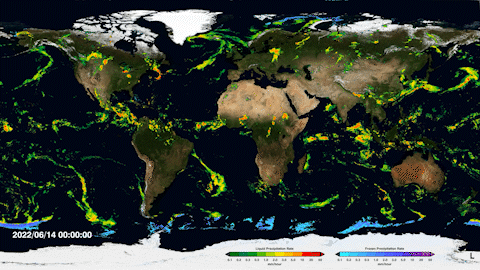


Hydrologic Sciences and remote sensing


Ardeshir Ebtehaj
Associate Professor
University of Minnesota
College of Science & Engineering
Department of Civil, Environmental and Geo-Engineering
Saint Anthony Falls Laboratory
Editor, Journal of Hydrometeorology
Tel: (612) 301-1483
Office: 378 (SAFL), 162 (CEGE)
e-mail: ebtehaj@umn.edu
GitHub: https://github.com/aebtehaj
Curriculum Vitae: (PDF)
A short Bio ...
Research Areas
Microwave and optical hydrology, satellite hydrometeorology, microwave remote sensing, inverse problems, data assimilation, land-atmosphere interactions, precipitation, soil moisture, and snow processes.
Statistical learning, mathematical optimization, artificial intelligence, machine learning, and computational harmonic analysis to provide new solutions for remote sensing of water and the environment.
Education
Postdoctoral Research, Georgia Institute of Technology
Ph.D., University of Minnesota, Water Resources and Hydrology
M.Sc., University of Minnesota, Mathematics
M.Sc., Iran University of Science and Tech., Environmental Engineering
M.Sc., Iran University of Science and Tech., Structural Engineering
B.Sc., Iran University of Science and Tech., Civil Engineering

Hydrologic sciences and remote Sensing (HydSens) laboratory is an academic team in the Saint Anthony Falls Laboratory (SAFL) at the University of Minnesota.
HydSens
The overarching goal is to uncover physical mechanisms describing the hydrologic water cycle through modern data science and machine learning approaches and provide solutions for sustainable developments across water and food systems using satellite remote sensing.





June 2025: We’ve received funding from NASA to advance remote sensing and high-fidelity sub-seasonal modeling of Arctic ecohydrology, in collaboration with the NASA Goddard Space Flight Center.
Dec 2024: We received 2.1 million dollars of funding from the USACE to study and provide solutions to the problem of Harmful Algal Blooms in freshwater ecosystems (PI: Prof. Hondzo). Hydsense is responsible for the remote sensing component of the project.
Aug 2024: We received funding from NASA's SMAP program to study Arctic lake ice phenology and methane ebullition flux using spaceborne L-band microwave radiometry. This is a collaborative project with the University of Alaska.